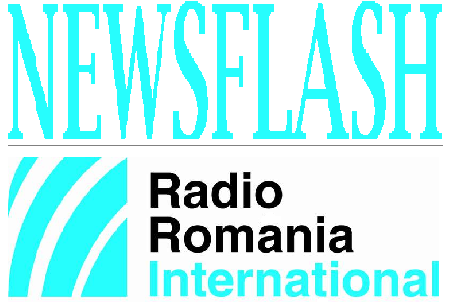April 25, 2014 UPDATE
A roundup of domestic and international news

România Internațional, 25.04.2014, 12:02
Friday saw the start, in Romania, of the campaign for the European Parliament elections due on May 25th. 15 political parties and alliances and 8 independent candidates are running for the 32 seats Romania is entitled to in the European Parliament. The main competitors are the left wing ruling coalition made up of the Social Democratic Party, the National Union for the Progress of Romania and the Conservative Party, the opposition center-rightist National Liberal and Liberal Democratic Parties and the Democratic Union of Ethnic Hungarians in Romania, a junior partner in the government. In a press conference, the Romanian President Traian Basescu said that in the period preceding the elections no issues of interest have emerged, so the president suggested some: Romania’s access to the Schengen area, integration of the Roma ethnic population from a European perspective, support for Moldova’s rapprochement and subsequent integration into the EU and fighting youth unemployment. According to President Basescu, by debating these issues, the candidates running for a seat in the EP should boost the Romanians’ interest in the vote. In the 2009 EP elections the vote turnout in Romania was 27% as compared to the European average of 43%.
The partnership between the European Union and the Russian giant Gazprom must continue, but the Union must reduce its dependence on Russian gas imports and find alternative supplies, said the European commissioner for energy, Gunther Oettinger in Bucharest on Friday. As alternative sources he mentioned Norway, Algeria, Azerbaijan and the southern delivery corridor. The EU official emphasised that Romania plays a major role in this sector, given its land and sea gas resources. The European commissioner attended on Thursday and Friday an energy meeting in Bucharest as the European Commission and Russia are trying to establish a three-party meeting, including Ukraine, to discuss the security of gas deliveries to the EU. Russia supplies around 25% of gas consumption in the European Union, while 65 of the 133 million cubic metres of gas purchased by the EU transit the Ukrainian pipeline network.
The situation in Ukraine was discussed on Friday during a conference call by US President Barack Obama, French president Francois Hollande, German Chancellor Angela Merkel and the British and Italian PMs David Cameron and Matteo Renzi. They pointed out that last week’s agreement signed in Geneva should be implemented for Ukraine to overcome the crisis and for preventing the worsening of the situation on the ground. According to the undertakings pledged in Geneva on April 17th Russia should abstain from provocative declarations and intimidating maneuvers. The American and western leaders also discussed the adoption of fresh sanctions against Russia. They reiterated that the territorial integrity and sovereignty of Ukraine should be fully respected. Tension continued to be high on Friday in Ukraine, one day after the Ukrainian troops re-launched the offensive in Slaviansk (in the east), one of the fiefs of the pro-Russian activists who ask for the country’s federalization. Russia denounced Kiev’s action considering it a crime against its own people and started new maneuvers near the border with Ukraine.
The Republic of Moldova, Armenia, Azerbaijan, Georgia and Ukraine- former Soviet republics that belong to the Eastern Partnership have called on Russia to withdraw its troops stationed near the border with Ukraine. They also expressed support for the organization in Ukraine of a free and correct presidential election on May 25th. Meeting in Prague on Thursday and Friday, the representatives of the 5 countries and the European Commissioner for Enlargement Stefan Fule talked about ways to improve these countries’ ties with the EU. The Eastern Partnership was created in Prague in 2009 to provide support for ex-Soviet states on the EU’s eastern borders in their democratic process and the introduction of economic and political reforms.
The Romanian ambassador to London, Ion Jinga, has harshly criticized the election campaign of the nationalist UK Independence Party — UKIP. In an editorial of the British edition of Huffington Post, ambassador Jinga labeled as unacceptable in Europe this party’s campaign manifesto, showing his amazement at how the Romanians in Great Britain are offended once again, in a country renowned for its people’s politeness and fair play principle. A Euroskeptic right wing populist party, UKIP on Tuesday launched its campaign for the EP elections using, among others, election billboards with shocking anti-immigration messages. Opinion polls place UKIP 2nd, after the Labor Party, in the British voters’ preferences, outrunning PM David Cameron’s Conservative Party.





























